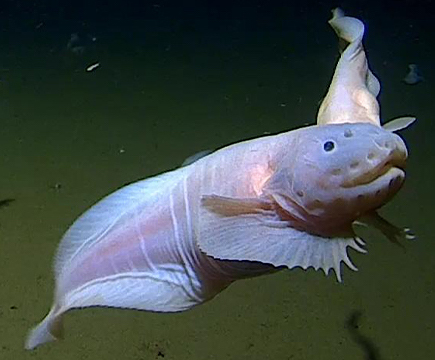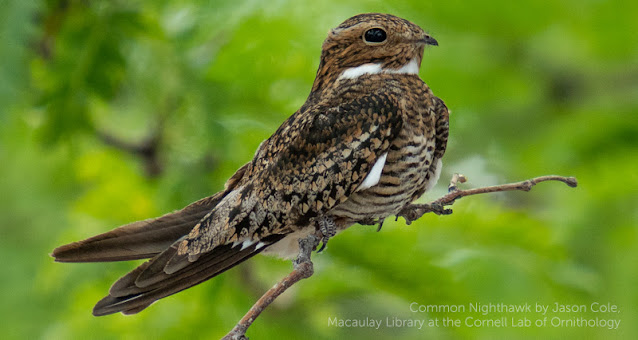This week in birds - #544
A roundup of the week's news of birds and the environment:
*~*~*~*
The Biden administration rather inexplicably approved an $8 billion project to drill for oil in the National Petroleum Preserve in Alaska, the nation's single largest expanse of untouched wilderness, and ConocoPhillips is moving full steam ahead on the plan.
*~*~*~*
A mass hunt of bison on the outskirts of Yellowstone National Park has killed 1150 animals. The hunt was intended to help keep brucellosis from spreading to nearby livestock.
*~*~*~*
Here's a commentary on planting native plants in your garden.
*~*~*~*
Is the Tasmanian tiger truly extinct or is it just very, very good at hiding itself from human eyes?
*~*~*~*
This is a snailfish that was filmed five miles underwater off the south coast of Japan. That is the deepest fish that has ever been recorded.*~*~*~*
Tulare Lake in central California has been resurrected from a parched expanse of thirty square miles by recent storms in the area. Here are some pictures that show how reservoirs have been filled by the storms.
*~*~*~*
Conservationists and concerned citizens are opposing a plan to mine near the pristine Okefenokee Swamp in Georgia.
*~*~*~*
Mature forests are vital to the fight against global warming so why would you allow them to be logged?
*~*~*~*
One of the better ideas to come along in recent years is the building of wildlife corridors alongside busy roads and now $350 million in infrastructure funds can be tapped for that purpose.
*~*~*~*
As a child, I first knew this late summer afternoon flier as the "Bullbat," but its proper name is Common Nighthawk and it is the American Bird Conservancy's Bird of the Week.*~*~*~*
President Biden recently established the Avi Kwa Ame National Monument in Nevada preserving some of the most biologically diverse and visually stunning parts of the Mojave Desert.
*~*~*~*
Certain animals show a surprising capacity for solving problems. Goats, for example.
*~*~*~*
Flying foxes cannot deal with extreme heat. When temperatures exceed 104 degrees Fahrenheit, thousands of the animals die.
*~*~*~*
An alarming crash in the numbers of salmon stocks along the West Coast has led to talk of fishing bans on the species.
*~*~*~*
A barrage of winter storms has led to record snowpack on the high slopes of Sierra Nevada.
*~*~*~*
This is the Akikiki, a small Hawaiian honeycreeper species that is on the brink of extinction.




Good morning, Dorothy. Thank you for the weekly round of environmental news. It saddens me greatly that the Biden administration has approved a massive project to drill for oil in the unspoiled wilderness of the Arctic. Despite their promises, notwithstanding their commitment to reining in CO2 emissions and getting a grip on global warming, they take one step forward and two steps back - maybe three. Surely new investment in oil and gas should be off the table completely by now. I shudder to think what will happen if Trump get re-elected. All the best - Gloomy David
ReplyDeleteI agree that it is depressing. I know leaders must make difficult and not always popular choices - not even choices that they themselves approve of - and, of course, we don't know all the factors that went into making this decision, but one would wish that a different solution could be found, one that would preserve the pristine Arctic.
DeleteGood morning, Dorothy. Again, I am so grateful for your very informative weekly roundup. I agree with you concerning the sad decision by the Biden admin to allow drilling in the wilderness of the Arctic. I'm sure this was one of those very difficult decisions that President Biden does not approve of himself. Have a blessed Easter!
ReplyDeleteThanks for your good wishes and the same to you and your family.
DeleteCount me as another who's baffled by the Biden administration's decision to drill for oil in the Arctic. There has to be someone who can come up with incentives to make the money-grubbers stop clutching at the old and embrace the new.
ReplyDeleteThe wildflower super bloom is here in Arizona, and it's a glorious thing to see. Denis and I loved to get in the Jeep and head out on trails deep in the middle of nowhere to experience relatively unspoiled super blooms with the added bonus of no traffic jams.
And... while I've been thrilled that California's water shortage problems seem to be momentarily solved, I've been worried about what's going to happen there when all the snowpack starts melting in earnest. We've already started having flooding problems here in Arizona as the snowpack starts to melt up in the mountains.
I envy you being able to enjoy the wildflower bloom.
Delete